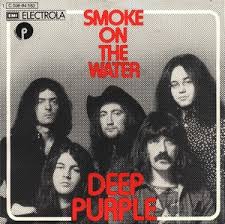
Present Perfect
| Tipo de oración | | | | |
| AFIRMATIVA | Sujeto | Auxiliar | Verbo en participio de pasado | complementos |
| I | have | studied | maths |
| She | has | seen | that film |
| NEGATIVA | Sujeto | Auxiliar Negado | verbo principal en infinitivo | complementos |
| I | haven't | studied | maths |
| She | hasn't | seen | that film |
| INTERROGATIVA | (Wh) | Aux | sujeto | verbo principal en infinitivo | complementos | ? |
| | have | you | studied | maths | ? |
| | has | she | seen | that film | ? |
| What | have | I | studied | | ? |
| Where | has | she | seen | that film | ? |
| What | has | she | seen | | ? |
| Why | have | you | studied | masths | ? |
| | | | | | | | | | | |
El Present Perfect es un tiempo que de manera general establece una relación entre el pasado y el presente. Sin embargo, y en relación con esta característica general, podemos decir que se utiliza para:
a. expresar experiencias
b. hablar de acciones que empiezan en el pasado y llegan hasta el presente.
c. hablar de acciones que, aun habiendo comenzado y acabado en el pasado, tienen efectos evidentes en el presente.
Experiencias
Muchas veces hablamos de cosas que hemos hecho en el pasado, pero cuando nos referimos a ellas no mencionamos cuando ocurrieron dichas acciones. Esto es así porque no estamos interesados en cuándo sucedieron esas acciones, sino en las acciones en sí.
I’ve travelled to France
Esta acción probablemente tuvo lugar hace varios años, pero en esa frase lo importante no es el momento en que esa acción ocurrió, sino el hecho de que yo, en mi vida, he tenido esa experiencia. En este sentido, el Present Perfect, sólo valdría para hablar de experiencias que han tenido personas que todavía viven, por ejemplo:
Paul McCartney has written many songs
pero
John Lennon wrote many songs
De todos es sabido que John Lennon fue asesinado hace casi 30 años. Cuando hablamos de las experiencias de personas difuntas, aunque hablemos de ellas el mismo día de su muerte, tenemos que utilizar el pasado, al igual que en castellano. Por este motivo, utilizamos el Present Perfect para describir acciones que pueden volver a ocurrir, por ejemplo
The teacher hasn't arrived yet. (Puede llegar todavía.)
I've spent $20 today. (Puedo gastar dinero y el día no ha acabado.)
Compárese estas oraciones con las siguientes
The teacher didn't arrive (La clase ha terminado y el profesor no ha venido)
I spent $20 this morning ('esta mañana' ha acabado, No puedo gastar más dinero “esta mañana”)
Ever y never
Ever significa alguna vez y aparece en oraciones interrogativas, sobre todo.
Have you ever been to Britain?
(Has ido alguna vez a Gran Bretaña?)
Never es su versión negativa y significa ninguna vez, es decir, nunca. Como palabra con significado negativo que es, debe aparecer siempre con el verbo en forma afirmativa, ya que en inglés no se puede negar dos veces en una misma oración, al contrario que en castellano.
I have never been to China
(Nunca he ido a China)
Present Perfect o Past Simple
El hecho de que el Present Perfect se refiera con frecuencia a acciones que empiezan y acaban en el pasado produce no pocas veces confusión con el Past Simple. La mejor manera de diferenciarlo es teniendo en cuenta que, si en la acción que empieza y acaba en el pasado no mencionamos cuando ocurrió, en ese caso utililizaremos el Present Perfect, por ejemplo
I’ve travelled to Budapest
Esta frase entraría dentro de la categoría de experiencias y por ese motivo se expresa en Present Perfect; lo importante aquí es la acción en sí, no cuando sucedió. Si, por el contrario, yo me refiriera a este mismo hecho indicando cuando tuvo lugar, tendría que utilizar el Past Simple
I travelled to Budapest last Summer
Acciones que empiezan en el pasado y llegan hasta el presente.
Este tipo de acciones responderían a la pregunta how long (¿Cuánto tiempo…?) y en ingles se expresan siempre en Present Perfect.
I’ve worked in this factory for 15 years
(He trabajado aquí desde hace 15 años)
Como se puede observar, en esta oración la acción comenzó a desarrollarse hace quince años y llega hasta el momento de hablar. Para este uso del Present Perfect, es preciso que tengamos en cuenta dos preposiciones fundamentales – for y since. La preposición for va seguida de unidades de tiempo, como pueden ser días, horas, meses, siglos, años, etc y se traduce por desde hace
I’ve known my best friend for five years
(Conozco a mi mejor amigo desde hace 5 años)
Por otro lado, since va seguido de un punto en el tiempo, es decir, una fecha concreta, un año, un día de la semana, etc
I haven’t eaten anything since yesterday
(No he comido nada desde ayer)
Además de ser preposición, since también puede ser una conjunción, es decir, también puede introducir una oración; en este caso se traduciría por desde que
I have played chess since I was a child
(He jugado al ajedrez desde que era niño)
Es necesario que tengamos en cuenta que, aunque en castellano podemos expresar este tipo de acciones de diferentes maneras, en inglés es preciso utilizar el Present Perfect. De esta manera la oración
They have been at this school for 2 years
podría traducirse por
Han estado en este colegio desde hace dos años
Hace dos años que están en este colegio
Lleva 2 años en este colegio
De ninguna de las maneras podríamos traducir la frase siguiente
Esta viviendo en Londres desde hace dos años
por
* She is living in London for two years
La traducción correcta sería en Present Perfect
I have lived in London for two years
Acciones pasadas que tienen efectos sobre el presente
I’ve broken an arm
(Me he roto un brazo)
Esta oración empieza y acaba en el pasado; sin embargo, sus efectos se pueden ver claramente en el presente, es decir, implicaría
I have my arm in a sling at the moment
(Tengo el brazo en cabestrillo ahora)
PRESENT PERFECT con just
La perífrasis inglesa have+just+past participle equivale a la perífrasis española acabar de+infinitivo y se utiliza para hablar de hechos que han sucedido de manera muy reciente
I’ve just had lunch, so I’m not hungry anymore
(Acabo de comer, por eso no tengo hambre)
PRESENT PERFECT con already y yet
Already significa ya y se pone en posición intermedia en oraciones afirmativas:
I’ve already had dinner
(Ya he comido)
Yet significa ya en oraciones interrogativas y todavía en oraciones negativas. Siempre aparece en posición final:
Have you seen Avatar yet?
No, I haven’t. I haven’t seen it yet
que es un periodo de tiempo inacabado.





